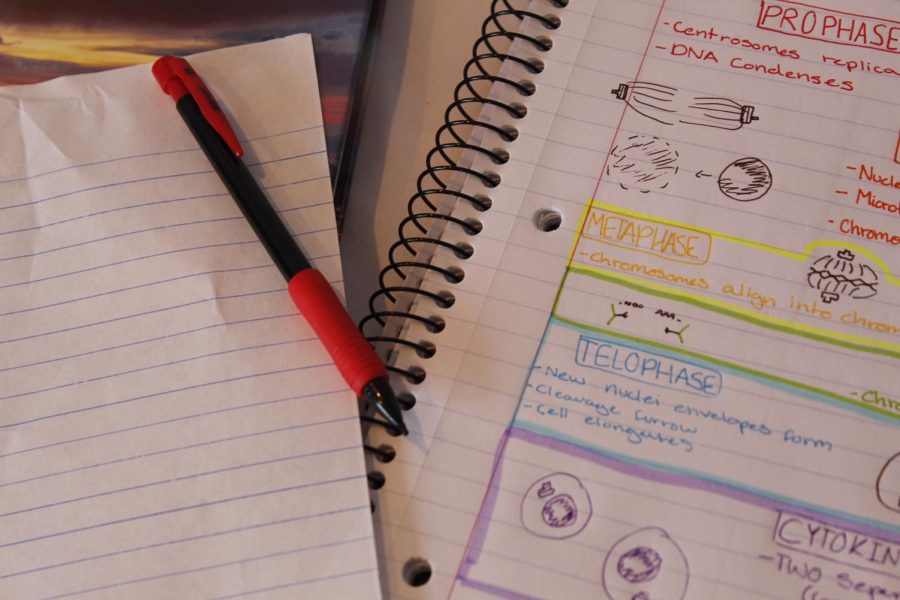Does the Illinois Science Assessment Accurately Measure Scientific Knowledge?
March 10, 2023
Junior year. I remember it like it was yesterday. A ton of fun classes, beginning to think about my future and, of course, the copious amounts of testing. I think we can all agree that the majority of testing, such as the SAT and ACT, is something we never look forward too but we can see how it’s necessary. The Illinois Science Assessment (ISA), however, lacks that understanding. I can still remember getting an email alerting me to the fact that I had to take the ISA, and I had no idea what it was; all I knew was that it had zero effect on my grades and my future academic ambitions, so it all felt useless. Combine that mentality with the fact that, despite my wide variety of trivia/academic knowledge due to my place on the trivia team, a large portion of the questions was about stuff I’ve never learned about and voilà! You get my absolute disdain for this test.
In 2014, Illinois adopted the Next Generation Science Standards (NGSS). Two years later, these standards were then combined with Illinois Learning Standards for Science, creating the backbone for the standards present in the current form of the ISA. Since 2016 the test has been given out to fifth, eighth, and 11th grade students. The test is made up of both multiple choice and written questions (which is just so fun) and serves as a measure for how well students are doing when it comes to actually learning science in order to ensure that the Illinois Learning Standards for Science are being adequately taught. This year the test will be on Tuesday, March 14 from 7:20 to 2:21. You may notice something about that time, and that leads to one of my problems with this test.
The ISA takes place during the school day with half of students taking it during the first half of the day and the other half taking it in the second half of the day. There may be some students who see this as a positive: yay no classes! But I see this as a serious negative. As someone who had two AP classes and one music class during the time I took the test, it really sucks. Classes that aren’t made up entirely of juniors are going to keep moving, even if you are unable to attend them, which can cause you to fall behind. It’s especially ironic when it’s noted that one of the AP classes that I missed was environmental science–a class that I really didn’t want to miss. I understand that the test isn’t long enough to make it take up a whole day like the SAT, but I don’t think putting it on a weekend would be too much to ask. People would lose a few hours out of their weekend, but I know I would much rather deal with that rather than missing out on valuable class time.
Since the ISA is based on the NGSS and the Illinois Learning Standards for Science, it takes a look at a wide range of topics, with Earth/space science, engineering, life science and physical science being the main standards. Something that I’m very aware of about myself is that I don’t like not knowing. When I take a standardized test, I like knowing that I have learned most of the stuff on the test and all I’ll have to do is remember things. This is not the case with the ISA. The ISA contains questions on a wide variety of topics, including stuff that not everyone learns. I personally opted to take environmental science as my science class instead of physics, putting me at a severe disadvantage whenever questions surrounding physics came up. The same goes for people who took physics whenever an astronomy question came up. People have the opportunity to take whatever science class interests them, and that is awesome. But now we have students dealing with the stress of not knowing and brute forcing their way through a topic that they know nothing about. I distinctly remember talking to one of my friends after the test and we both agreed that we were really upset over the fact that we seemed to not understand a majority of the questions. While I understand that the ISA has zero effect on my academic standing, it still sucks to know that I didn’t understand so much. I know plenty of people, myself included, that have this idea that we constantly need to perform well academically. I know this idea has given me a lot of anxiety regarding my academic performances and it really took a toll on me when the test didn’t even give me the opportunity to perform well.
The ISA is different from other standardized testing because it is used as a sort of poll. It’s meant to see how well students in Illinois are performing in certain aspects of science and then using that data to help the Illinois State Board of Education build state wide curriculums in order to help students grow in weaker areas. A great idea on paper, but again, people who don’t take certain classes are automatically going to do poorly in certain parts, so it is not an accurate representation of the shortcomings or successes of the current curriculum. I know that I don’t represent the majority of students when it comes to test taking. I tried my hardest on the ISA even as I was growing more and more annoyed at the questions being asked. I know that there are plenty of students who, unlike myself, cared so little about the quiz and knew that it had no effect so they didn’t even try, answering questions as quickly as possible rather than as accurately as possible. This brings the accuracy of the data the test gathers back to the forefront because if students don’t even try to do well on it, then is the data really reliable? While I did care during the test, after it I became just like those students in the second group. I didn’t care; I don’t even know what my score was on the ISA because it was so unimportant to me. I knew it had nothing to do with my future as a student, and I knew I did poorly, so I just ignored it. This is without even starting to mention the fact that many Illinois students, around 52%, already take another standardized test with a science section, the ACT. So far in 2023 Illinois has an average ACT score of 24.7, one of the highest averages in the country. As for the data specific to science, Illinois drops in its ratings. Only 55% of Illinois students who take the ACT end up passing the science section of the test, the twelfth highest in the country. The ISA doesn’t have as specific of data since it is just a state wide test but it can be noted that 48.9% of students failed to meet the standards laid out by the test, which is remarkably in line with the ACT especially when it is considered that not all students take the ACT. This similar data shows that it seems almost redundant, it’s clear that students aren’t performing very well in science. Some may say that the ISA would provide an opportunity for students to improve in for the ACT but I would have to disagree. There is other ways to do progress checks or learn test taking skills, there’s no need to force students to deal with a ton of anxiety before taking what is essentially a study guide.
The ISA is just another standardized test that every junior is forced to take. But unlike tests like the SAT or the ACT, students don’t understand the importance of it and even if they do understand, they feel like they have no chance of actually doing well on it because of the way the questions are set up. So what could be done to fix up this mess of a test? One thing that immediately comes to mind is having students in different science classes take tests based on the learning standards for that specific class (physics students taking a physics test, biology students taking a biology test etc.). That way people aren’t being forced to take a test on things they have no chance of knowing the answers to. This would also make the test significantly shorter, so students could just take it during their science class. To all the juniors who will be taking this test, I wish you the best of luck. I can tell you right now that you are probably going to get mad at the test, but push through it because, on the bright side, you’ll never have to take it again.




